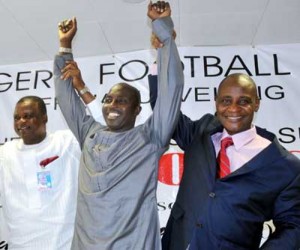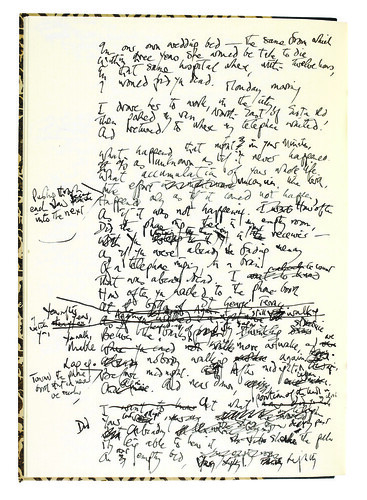The last few weeks have been pretty emotional and quite busy for our family. I received a call from producers of The Nate Burkus Show who were looking to do a 'while you were sleeping' episode in our home where they refurbished or remade a room for a a spouse (or family) member while they were unawares and over night. They wanted to do this for my wife and for the cleveland area audience. So, for a whole week or so, I had to help them coordinate the logistics remotely so they could come in and out smoothly.
Now, the first thing I asked them was if it was going to be discreet. For my family, our home is very sacred and there are rooms in it that are essentially hallowed ground despite the fact that it is very different from the home it was before the fire. For one thing, the room that they chose only needed to be refurbished since - on account of an incredibly philanthropic community effort - that floor had already been reconstructed.
It was alot of fun, very emotional, and cathartic for me to close some of the loops in the narrative of surviving the violent ebbs and flows of life. This was definitely more fun than I have had in a while. It was a great opportunity for Roschelle to have a stage to talk about some of the themes that are important to the both of us (and Andrea): Patient advocacy (as it relates to technology and law), organ procurement advocacy, surviving the violence of life, etc.
Andrea Stricker - community organizer and logistics manager extraordinaire - was instrumental in keeping us all sane. She helped coordinate Roschelle's schedule so she was out of the house with the two tornadoes that are Nkiru (9 months) and Ngozi (2 years) and upstairs during the night. I (and almost all of the crew) literally had no sleep that night as they moved in furniture and incredibly personal effects (such as family albums with pictures, etc.) into a space that has seen jubilant love, gut wrenching fear, bustling reconstruction by various local union members, neighbors and friends, etc. - the full anthropological range.
The room has been completely transformed in a personal way and we are still trying absorb the sum total of it all. Some days, I wonder if thousands of years henceforth, how much of the history of the events of a house remain. One of the items they moved into the living room was a pair of columns that (we were told) were build in the 18th century.
I don't know anything about them, which house they were a part of, whether the house they were a part of suffered moments of tragedy similar to the house they have been moved into and (in particular) into the location they were moved into (a location where so much utter destruction occurred). Given how old they are, they must have their own history and memories that others might have chosen to forget and that I may never come to know about and not knowing them might help in being able to appreciate them for the great work of art and architecture they are.
I don't think people should be so quick to relocate from a home where disasters (natural or otherwise) have occurred. The fear of wandering specters and/or perpetually revisited memories is only as much of a problem as we let it and this is proven certain by the fact that we don't have any fear about being in that house (at least to that effect), despite the fact that there are many people we know who have great trepidation stepping into it. So, being able to transform that room and facilitate the journey along the determination to not allow our house to be defined by the events that occurred in it was a special thing.
Soon after they shot the 'revealing' (as they call it), they returned to New York and we flew out on Wednesday and Thursday of last week. That first shot is of Ngozi, who sat with me and I was lucky enough that she was sleepy just before boarding and - after having her ultimate pacifier (her "ba ba") - slept most of the way.
On the way to the hotel, Roschelle convinced the driver to pass through the heart of the African American Harlem Renaissance, stopping by Silvia's, Central Park, and the Apollo. I was doing too much contemplation and observation to take as many pictures as I wanted, but I did get a few in front of the Apollo.
Given all the incredible history of the building, it seemed much smaller physically and belies its historical stature. The hotel we stayed in is was in uptown Manhattan. Soon after arriving, we turned the hotel rooms into a control center for a toddler and infant (as you can see in the picture of Nkiru rummaging through our things)
The last shot is of us heading to the CBS/BET studios in the Limo they were nice enough to pick us up in. Outside the studios was this enormous line of people waiting to be in the audience of the BET taping where Cello was performing (we ran into him coming back from the on set taping at the elevators).
It was very interesting seeing the belly of the beast that carefully prepares the media that churns the vast entertainment engine of America. Everything is carefully coordinated, and it reminds me slightly of The Truman Show. I learned a few things that I found interesting:
- The tapings of interview scenes are not continuous but can involve1-5 takes per 30 minutes
- The framework of the narrative is stitched together with a priori editing work that is filled in with onset footage in a very coordinated way
- Editing is a major part of how such things are put together
All in all, it was alot of fun but it was stark reminder of why I subscribe to the philosophy that once you understand that change is inevitable (and perceive its wave form), you learn to not become a slave of the amplitude of the wave. Soon after we returned, my father became ill and had to come to the Heart and Vascular Institute.
The last few weeks, I have been reminded of my mortality and the mortality of the people I love in my life, of the wave form of change, and the importance of securing your family as insurance to the violent twists of life. Keeping together the assemblage that is my family is hard work, but it is even harder to navigate without that foundation.
 Well hallelujah! Finally it's come to pass. SIasia was appointed head coach of the Super Eagles last month. The heartwarming stuff started straightaway, with his celebrating with genune emotion, and singing Yoruba praise songs. This is an institution that means to almost 200 million people so much more than just a bunch of footballers ("41. They aren't kidding when they talk about football as a unifying force.") It's only proper for someone granted its custodianship to demonstrate what it really means to him, especially when that demonstration includes a bit of native Yoruba to reinforce the fact that we're keeping this business properly in the family. Yes, yes Shaibu Amodu (National team coach in several stints between foreign coaches) before him was also Nigerian, but he always seemed as much bureaucrat as trainer, and rarely showed the passion and fire I think our boys need to show what they're capable of doing in that green strip. In the past we've had great leaders in the field such as Yekini, Okocha, Olise, Amokachi and even Siasia. Unfortunately we don't really have that any more, so we need a spark from the sidelines. If Siasia can't provide that, no one can.
Well hallelujah! Finally it's come to pass. SIasia was appointed head coach of the Super Eagles last month. The heartwarming stuff started straightaway, with his celebrating with genune emotion, and singing Yoruba praise songs. This is an institution that means to almost 200 million people so much more than just a bunch of footballers ("41. They aren't kidding when they talk about football as a unifying force.") It's only proper for someone granted its custodianship to demonstrate what it really means to him, especially when that demonstration includes a bit of native Yoruba to reinforce the fact that we're keeping this business properly in the family. Yes, yes Shaibu Amodu (National team coach in several stints between foreign coaches) before him was also Nigerian, but he always seemed as much bureaucrat as trainer, and rarely showed the passion and fire I think our boys need to show what they're capable of doing in that green strip. In the past we've had great leaders in the field such as Yekini, Okocha, Olise, Amokachi and even Siasia. Unfortunately we don't really have that any more, so we need a spark from the sidelines. If Siasia can't provide that, no one can. 

 As a sort of epilogue to the series, I posted an interview with award winning Nigerian-American novelist
As a sort of epilogue to the series, I posted an interview with award winning Nigerian-American novelist 



